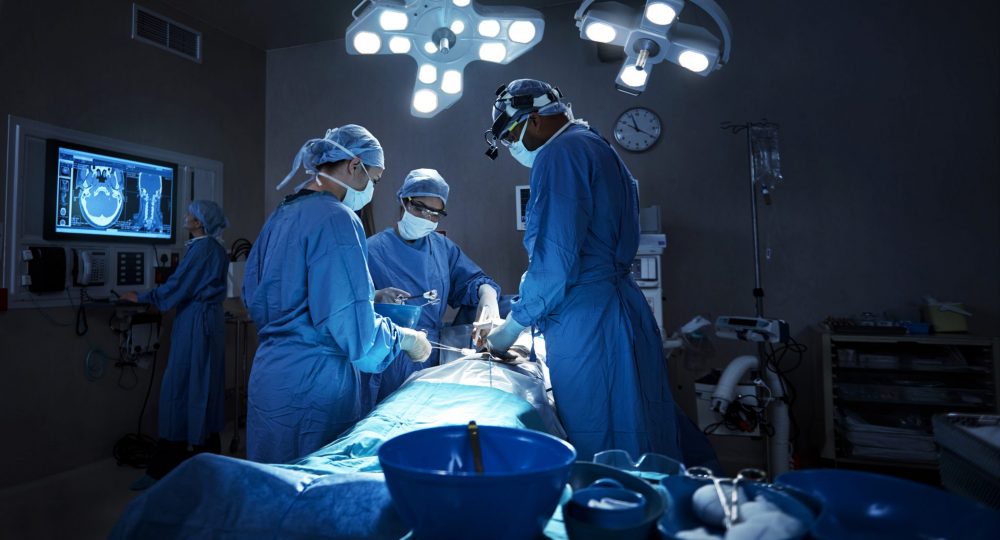Patient safety and human factors
We caught up with Jo Gillespie, former airline pilot and aviation safety expert, to discuss how understanding the link between patient safety and human factors has revolutionised the approach to safety in aviation. He suggests that now is the time for healthcare to learn lessons from other industries to improve operational performance and patient safety.
Tell us about the principles and philosophy of human factors and performance training.
The principles of the training are based on the fact that humans are innately fallible. It’s not a question of if humans will fail, it’s that they definitely will, on occasions, fail. Therefore, we need to design our systems in a way that they are tolerant of errors because we know that they’re going to happen. To understand human factors it is important to know how it differs to human performance which is focused on how and why people do what they do, rather than the design of machines, equipment or the work environment.
Technology has changed enormously over the last 100 years or so, but the human hasn’t changed at all. We’re still working with the same functionality that we’ve had for thousands of years. That functionality really comes down to two simple channels that we can utilise:
- Cognitive capability – the ability for conscious thought – which is very effective and very capable, but which has a number of vulnerabilities, not least the fact that it can be overloaded by things like panic, stress and emotion.
- Learned behaviours – things that we’ve been practising since birth – for example, standing up. The human brain has the capability to send a number of discrete signals to each muscle to enable you to stand up. It is equally true of driving a car, flying an aeroplane and carrying out surgical procedures. Although they are very effective – look at sports players, for example – they are also vulnerable in a number of ways.
What we can see from this is that the human only really has two functional options for achieving whatever it’s setting out to achieve, and both of these functional options are fallible. So we need to make sure that what we do, and the way we do things includes defences against these fallibilities.
Why is patient safety and human factors in healthcare particularly important?
Let’s take operating theatres as an example. It’s an environment in which people of different seniorities are present. There’s the surgeon, of course, but you also have anaesthetists who are entrusted with their skills, knowledge and experience to do the job well every time.
There is no back up to them. In most cases, there is nobody watching them; there’s no monitoring loop to make sure they don’t make a mistake. However, we already know that they are humans, and therefore we also know that they will make mistakes.
We’re starting to see the NHS introduce things like the WHO checklist, the swab count – these are defences being brought in to account for the known fallibility of humans. Nevertheless, we often don’t have sufficient defences in the system to protect ourselves against the known element of human error.
What are the important tools and techniques to improve safety?
Briefings and de-briefings are particularly important. It is here where inconsistencies lie. Briefings in some cases don’t exist, in other cases, they are quite detailed and informative. Virtually never are there debriefs. Awareness gained from training staff in these things is equally as important.
Interestingly, when we’re training people in aviation, we’re very diligent about debriefing. We teach them stuff, and after the teaching exercise, we go into an extensive debrief. When flying a plane – a day-to-day routine for pilots, much like operating for surgeons – very few people debrief.
In military operations, on the other hand, you debrief everything. After every operation you conduct, the crew will come back together and debrief the full mission afterwards, and there’s a lot of value to be learned from doing so.
The build-up and the wind down from theatre activity is often perhaps forgotten about, but it is in fact very important. Those are things that, if time permitted, they could focus their attention on. But as with all things, resource management is an issue.
Are there takeaways for all involved in the medical profession?
It cannot be overstated, the importance of the input of all involved recognising their role, how they impact upon the performance of the team as a whole, and the link between human factors and patient safety. Whilst the surgeon may be performing the trickiest part of the activity, he can’t do it without all the others. The surgical procedure is the crescendo of the performance. Either side of it there’s a build-up and a wind-down.
I was taken into recovery at one point to look at the layout and the environment. I said to the guys in recovery, “you guys must pretty much have the easiest job because the worst is over, people are just recovering, their stress level is reduced.” And they replied, “No, no, completely the opposite. It’s in recovery where things most often go wrong. Reactions occur where people deteriorate rapidly and the reaction needs to be much, much faster.”
In terms of understanding patient safety and human factors, is the healthcare sector playing catch up with other industries?
I’d shy away from saying ‘playing catch-up’ because that sort of implies that they’ve been left behind somehow, but that’s not the case. It’s not so much that, as healthcare learning from the mistakes and lessons of other industries to understand the effects of human factors to improve patient safety.
The changes that have come about in aviation – the introduction of crew resource management, human factors training, human performance training, briefing, debriefing – all these things have come about in the wake of accidents.
Matt Lindley, a former airline pilot who now applies his experience to the NHS, identifies similarities in roles across these two industries: the captain is the consultant; co-pilot is the junior doctor; cabin crew are frontline staff and ’the eyes, ears and nose’ of an organisation. Anyone of us can lose ‘situational awareness’ when exposed to sufficient levels of stress; medical and surgical emergencies are prime examples of when we need to listen and our team to speak up.
So, we’ve learned these painful lessons the hard way and those things have been implemented. You could almost say it’s almost a free gift for the NHS to learn from other industries on the back of their pain and suffering because there is still much room for improvement.
A junior doctor tried to raise concerns about wrong-site surgery in the operating room. Sadly for the patient, she was ignored until it was too late. There are some trigger words which should always be heeded; think ‘concerned’, ‘unsafe’ and ‘stop’. It’s a psychology of safety which starts at the top and the bottom to meet in the middle that is needed to create an open and just culture that puts patient safety at the heart of healthcare.
How would you explain the positive impact that a human performance training programme would have on an NHS organisation?
It’s two-fold I suppose. The training aspect of it enhances and increases awareness of our fallibility. Where our fallibility lies and just how fallible we are as humans. The workshop part of it – the bow-tie part – begins to deliver some workplace level tools to defend the processes and procedures against the fallibility of the human.
On the wall of the lecture theatre at Queen’s hospital there is a motivational slogan ‘the way we work as a team is often just as important as what we do’. This is straight off the wall of an NHS hospital and it really supports exactly what we’re trying to do.
Verita provide a human performance training course to help organisations learn about human factors which can have many benefits including reductions in risk, costs and improvements in safety.
If you would like to learn more about patient safety and human factors then please book a free consultation or contact Ed Marsden on 020 7494 5670 or [email protected].





